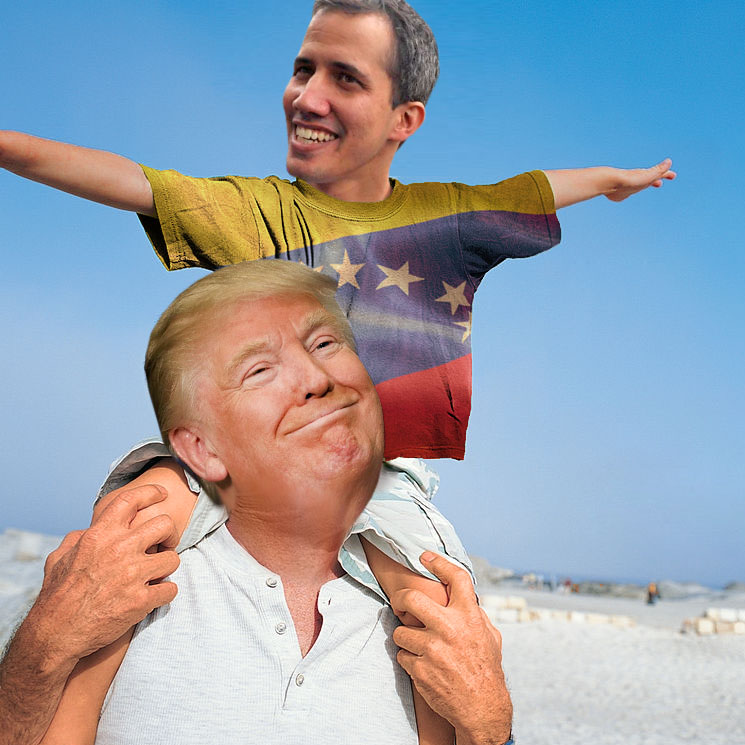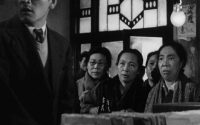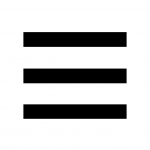The Venezuelan meme 2: Juan Guaidó edition~ 7 min

First of all, we should keep in mind: Venezuela has the largest oil reserves in the world. With that said, let’s look at the most recent episode in which a certain country to the north tries to appropriate the property of others.
“No, I’m the President of Venezuela!”
On January 23, during a right-wing opposition demonstration in Caracas, Juan Guaidó, just another one of the many ridiculous characters of the Venezuelan Right, cast his die. Days after assuming the mantle of President of the National Assembly (which grants him parliamentary immunity), he declared himself President of the Republic. For that end, he invoked two articles of the Constitution as justification, 233 and 333.
Article 233º states that in case of:
- Death;
- Renouncement;
- Supreme Court of Justice decreed dismissal;
- Permanent physical or mental incapacity certified by a medical board appointed by the Supreme Court of Justice and with the approval of the National Assembly;
- Abandonment of office as declared by the National Assembly;
- Repeal of the popular mandate.
One of the following scenarios will play out:
- If the President has not yet taken office, there will be further elections within 30 days. During this period, the President of the National Assembly assumes the position of President of the Republic;
- In case the President has already taken office, there will be new elections in the next 30 days, but the Presidency of the Republic is taken over by the Executive Vice President;
- In case the President of the Republic has been in office for four years already, the Executive Vice President will complete the two missing years.
Article 333 says that the Constitution will maintain its validity even if overturned by an act of external force majeure and that in such a case it will be the duty of all able citizens to reestablish it.
Since Maduro is not dead, did not resign, was not dismissed, does not suffer from permanent and proven physical or mental incapacity, did not leave office and did not suffer a popular repeal of his mandate, Guaidó’s constitutional argument is dubious to say the least. Not a single constitutional article claims that a John Doe holding an image of Bolivar in the middle of the street can become President of Venezuela just because he wants to. The difference between an asylum patient and Juan Guaidó is the support of the United States.
Shortly after Guaidó’s play, Trump declared that he recognizes the claimant’s legitimacy and that:
I will continue to use the full weight of the economic and diplomatic powers of the United States to press in order to restore Venezuelan democracy. We encourage the other governments in the Western Hemisphere to recognize the President of the Guaido National Assembly as Interim President of Venezuela (…).
In response, the Venezuelan government cut off diplomatic ties with the US government and ordered the US diplomatic corps to leave the country. The US responded saying that it did not recognize the government as legitimate and ignored the order. Clearly, the US is making up increasingly absurd red lines so they can retaliate once one of them is crossed. Demonstrations of support for the government and the opposition took place in several cities, the largest in Caracas. Several violent protests were registered, some of them in working-class neighborhoods. The local population accused the demonstrators of being outside agents.
The choir of fools
Immediately following the US statement (a suspicious person might say it was almost as if everything was previously coordinated) the right-wing governments of Canada, Brazil, Argentina, Colombia, Chile, Costa Rica and Ecuador declared themselves for the pretender. The governments of Cuba, Bolivia, Nicaragua, Uruguay, Puerto Rico and Mexico positioned themselves in opposition. Outside the American continent, Russia, Turkey and China have remained on the government’s side, while the European Union called for new elections, placing itself implicitly on the side of the pretender.
Many of those calling for new elections quote a supposed illegitimacy of Venezuelan elections. This argument dates to Chavez’s time and overlooks the fact that Venezuela respects all the democratic election criteria of the OSCE. In addition, the Venezuelan government strives to have a large contingent of international observers covering its elections in order to guarantee impartiality. Maduro was elected with 68% of the votes and an abstention rate of 54%. By contrast, Trump was elected with 46% of the popular vote, less than his opponent, and a 44% abstention rate.
What the fragmented and mass appeal lacking right-wing opposition in Venezuela does not want to admit is that it can not gain power through elections. When election time comes, they refuse to participate and then complain that they did so because the elections were invalid. A circular and self-serving argument that international corporate media later disseminates as legitimate.
What the Venezuelan right-wing opposition effectively advocates is almost impossible to discover. The website for Guaidó’s own party, Popular Will, does not contain any political program beyond the usual slogans about defending democracy and opposition to corruption. Jorge Martin of the Venezuela Analysis website says the following about the implicit objectives of the transition law being prepared by the opposition:
(…) the nationalised companies will be returned to their former private owners (including telecommunications, electrical, SIDOR, cement, etc), as will expropriated landed estates. It is noteworthy that there is a lot of talk of property and business rights, but no mention is made of workers’ rights, which would certainly be abolished. (…) massive dismissal of workers from state companies and the entry of private capital into them (…)
In short, the right-wing opposition is preparing the usual neoliberal armed robbery of national wealth and the immiseration of the working class for the convenience of American capital. It’s another Bolsonaro to come.
For now, the majority of the military institutions seem to remain on the side of the president-elect and his government. Army loyalty is something that the government has been careful to cultivate, with numerous economic incentives to loyalty, such as state contracts and exclusive stores. On Monday there was a small riot of National Guard soldiers but it has been suppressed. It should be noted that the transitional law being prepared by the right-wing opposition also includes a provision that guarantees immunity to military personnel who revolt against the elected government.
You do not have to like Maduro to know what this is
To accept frameworks that look at the Venezuelan government as “Maduro’s regime” is to accept the language of imperialism and its color revolutions, who try to individualize their enemies. Under the excuse of removing an evil dictator, a Khomeini, a Saddam, a Gaddafi, an Assad or a Maduro, great crimes of collective punishment are committed.
Said collective punishment includes economic sanctions, of which Venezuela has known many. For example, the country is embargoed on international financial systems under the control of the dollar, which restricts its ability to import essential goods necessary to keep the economy functioning, along with food, medicine or to export oil.
This does not exempt the extraordinarily derelict management of the economy by the United Socialist Party of Venezuela. It built a social state dependent on high oil barrel prices. But at the same time, it neglected the development of the economy and the qualification of the working population while leaving large sectors of the economy in the hands of the old oligarchy. It was a tailor-made recipe to leave the country vulnerable to internal and external economic attack, especially now that the oil barrel price is low. Under these conditions, it would be surprising if the economy had not ended up in its present catatonic state.
If there is any long-term hope for the PSUV, it is to turn left and start exercising serious and intelligent control over the economy, to say the least. For now, the PSUV leadership seems to be betting on control of the army as their guarantee of keeping power.
If nothing else is done – and it may already be too late – the continuous clash against the forces of the vindictive internal oligarchy and of external imperialism will inevitably bring the Right to power. Until then, resistance will go on. However, to the Left looking at the situation from the outside, it is total historical blindness to think that supporting coups carried out by the Venezuelan Right will somehow end up offering a better quality of life to the Venezuelan working population.




